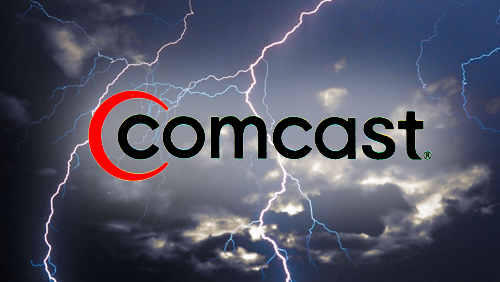 Comcast has made the news twice in the last two weeks. First it announced a planned $45.2 billion merger with Time Warner Cable, which would give it a third of all the pay TV subscribers in America. Then word leaked of the deal struck between the cable giant and Netflix to make sure the latter’s content streams maintain consistent quality.
Comcast has made the news twice in the last two weeks. First it announced a planned $45.2 billion merger with Time Warner Cable, which would give it a third of all the pay TV subscribers in America. Then word leaked of the deal struck between the cable giant and Netflix to make sure the latter’s content streams maintain consistent quality.
The proposed merger between Comcast and Time Warner wouldn’t affect competition locally since the two companies operate in different markets, and that will be the main argument the government’s antitrust regulators will lean on when they consider whether to let the deal go through. Add in the fact that officials at the Department of Justice, Federal Communications Commission, and Federal Trade Commission have all previously represented Comcast or its subsidiaries NBC and NBC Universal, and there’s every reason to expect that the deal will go forward with nothing more than token resistance.
While it wouldn’t affect competition in local cable markets, the merger would give an already powerful internet service provider a significant boost to its ability to dictate the future shape of the internet in America. Not all that long ago you could pick from a variety of internet service providers, including small, responsive, local companies if you lived in the right place. The advent of broadband narrowed the number of choices in most places and the trend ever since has been toward fewer choices and greater centralization. Where I live, there are exactly two broadband internet providers – and that’s one more than a lot of people have access to. Comcast has been a major proponent of programs like the Copyright Alert System and monthly data caps for its customers, and now it’s going to have even more influence in bringing those and any other initiatives it comes up with to the table.
Where a newly enlarged Comcast is most likely to affect the average American’s internet experience is not in its dealings with customers but in its ability to dictate terms to companies that use the internet to deliver their services. The terms of the government’s approval of the NBC Universal merger prevent Comcast from profiting by slowing or blocking internet traffic until 2018. But Comcast has prevailed in the past against internet backbone companies that serve as content delivery networks for internet content providers, forcing the backbone companies to pay for system upgrades to carry the increasing amount of data they serve to home users for companies like Netflix. (There’s a great post here explaining how Comcast could simultaneously comply with the restrictions and throttle Netflix traffic.)
Netflix’s new agreement to pay Comcast for direct access to its network bypasses the internet backbone companies entirely. That’s not new in and of itself, since Comcast already has similar agreements with other popular internet portals. But Netflix delivers something like a third of all the data on the internet today, meaning that Comcast has effectively set a precedent for dictating survival terms to market leaders. Once the restriction on slowing or blocking traffic is lifted in 2018 there will be significant incentives for Comcast to throw its weight around further. Those will come mostly in the form of its NBC Universal subsidiaries: Universal Pictures and five smaller film studios, 14 cable networks, five sports networks, five internet content networks, three news networks, and the Weather Channel. All that content production power is delivered through both pay TV, which Comcast dominates, and online services like Netflix, Amazon, and Hulu (which Comcast partially owns).
In effect the company will become the modern media equivalent of the old vertically integrated Hollywood corporations, companies like Paramount and MGM that owned the production, distribution, and exhibition arms of the film industry. Nobody else in media today has a similar ability, giving Comcast the ability to play bully whenever it chooses in a number of different industries. If it can lay low a company like Netflix, it’s not hard to imagine the harsh treatment it might apply to future startup companies that dare to venture into competition with the behemoth. There will be less and less incentive for innovation, saving cable TV from the threat of obsolescence at the hands of more responsive technology. All the while the old dream of an open, free network to connect the world will lie gasping its final breaths, staring up at the monster that killed it: Comcast.





